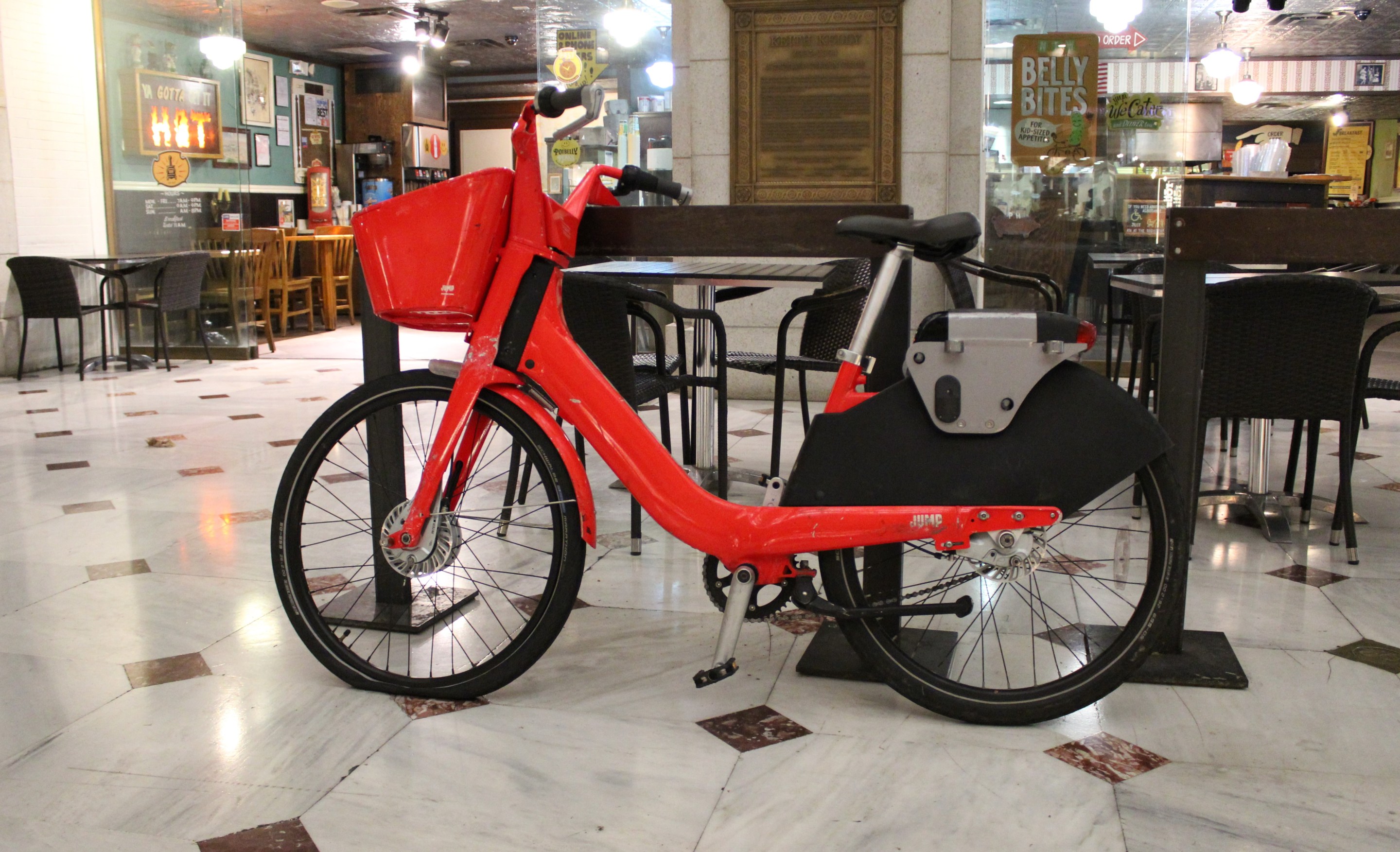Uber is removing its fleet of electric bikes from Atlanta and San Diego this month as the company struggled with increased regulations on transportation devices in urban areas and staggering losses of more than $5 billion following an untimely stock offering.
The transportation technology company notified San Diego customers on Thursday that it would scoop up all of its JUMP-branded devices Sept. 19 and wind down its e-bike operations in Atlanta by the end of this week. JUMP scooters will remain in Atlanta and a limited number of bikes will be available in San Diego naval bases, Uber said.
Uber decides where to introduce its transit products on a "case-by-case basis" and the bikes could someday return to both cities following negotiations with city leaders to address concerns about their use, company spokesman Matt Wing said.
"Our goal is to make JUMP electric bikes and scooters a sustainable part of the transportation ecosystem," Wing said in a statement to Streetsblog.
City leaders in both localities have cracked down on electric scooters and bikes this summer following a spate of injuries and fatalities and complaints from residents about parks and sidewalks strewn with the devices.
San Diego Councilwoman Barbara Bry called for a temporary ban on electric scooters on July 26 because scooter companies weren't complying with new regulations that went into effect on July 1. Bry said she was alarmed by a rise in scooter crashes and injuries, citing 15 serious injuries in the first half of the year and two deaths, including a man who died when he collided with a woman who was also riding a scooter.
And last month, Atlanta Mayor Keisha Lance Bottoms imposed an overnight curfew on electric bikes and scooters, and introduced legislation to halt new scooter permits after four scooter riders were killed by drivers this year.
"Given the serious effects these devices have on our infrastructure, public safety, and quality of life, the city cannot allow this rapidly growing industry to move faster than our ability to regulate it,” Bottoms said in a release that did not also suggest crackdowns or new regulations on cars.
Uber agreed to pull its fleet from San Diego acknowledging "current micro-mobility regulations foster an unsustainable operating environment," but would not say why the company was removing the bikes from Atlanta. Calls to Renew Atlanta, which regulates the devices, were not returned.
Cities have struggled to regulate a slew of electric mobility options including scooters, bikes, and mopeds designed to get people out of vehicles and connect them to other forms of public transit.
City officials have issued permits and launched pilot programs sometimes without providing the corresponding infrastructure or redesigning streetscapes to ensure that riders have safe places to ride or leave the devices without cluttering streets and sidewalks.
That anti-scooter sentiment led leaders like Nashville Mayor David Briley to attempt to ban the devices, while other cities, such as San Francisco and Beverly Hills, simply limited their spread even if they were available in neighboring communities.
Meanwhile, Uber and other tech companies seeking to gain a foothold on a fast-growing sector of the transportation market, shift bikes and scooters in and out of localities depending on where they can make the most revenue without being tripped up by government regulations.
Uber had already withdrawn its bike share program in Dallas and San Antonio earlier this summer and announced it would cease operations in Staten Island while simultaneously introducing bike share to Mexico City. (The Staten Island announcement appears to have been a bluff, the local paper reported.)
Widespread vandalism and safety concerns caused Uber to remove JUMP bikes from Providence, although the company is optimistic it will resume operations in the fall.






